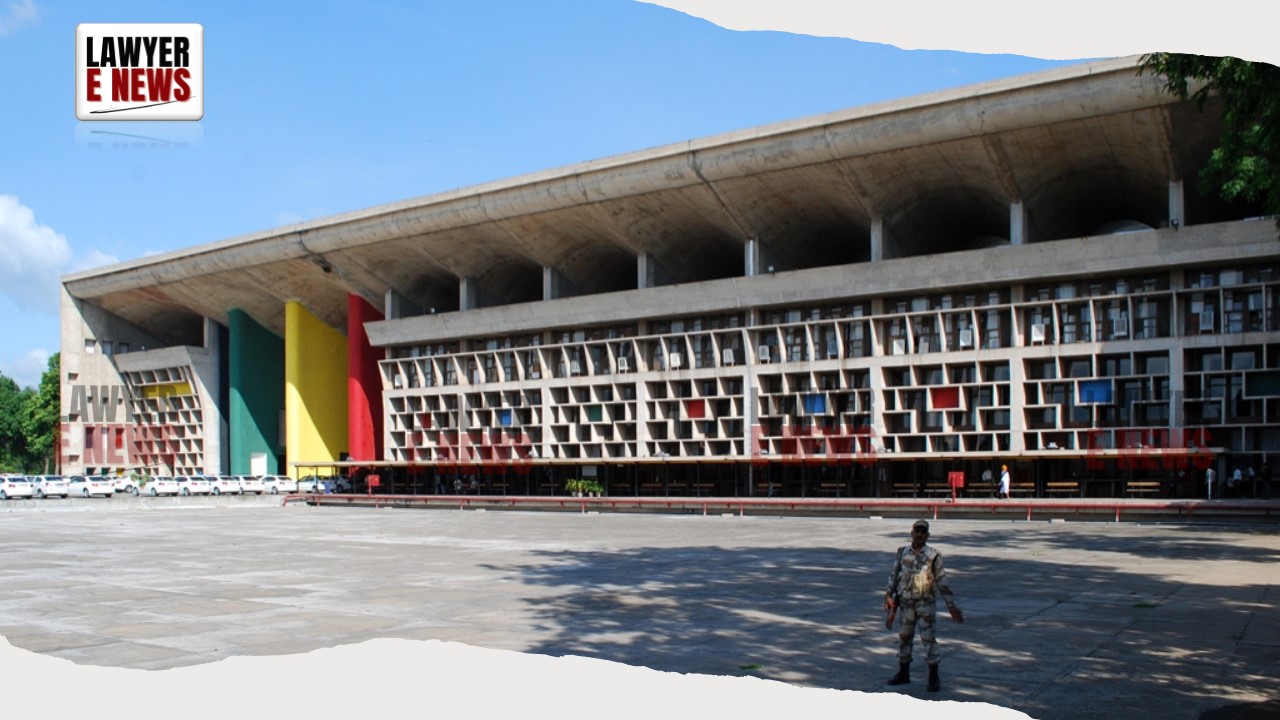-
by Admin
15 February 2026 2:36 AM



Punjab and Haryana High Court quashed the cancellation of the Gram Panchayat Sarpanch election for Pona village, Ludhiana, and directed the immediate resumption of the election process. The court ruled that the cancellation of elections during polling, based on allegations of disqualification, violated the fundamental principles of election law and democratic processes.
The court observed, “Once the election process has begun, any objections, including disqualification disputes, must be resolved through post-election statutory mechanisms, as mandated by law and reiterated by the Hon’ble Supreme Court.”
The court clarified that elections cannot be arbitrarily canceled during their ongoing phase. It highlighted that disputes, including allegations of disqualification, must be adjudicated post-election to avoid disrupting the democratic process.
The alleged disqualification of the petitioner (Harpreet Singh) under Section 208(k) of the Punjab Panchayati Raj Act, 1994—based on claims of unauthorized occupation of Panchayat land—was deemed a matter to be resolved after the election results through statutory remedies.
The court harmonized the provisions of the Punjab Panchayati Raj Act, 1994, and the Punjab State Election Commission Act, 1994, emphasizing that disqualification disputes or allegations of corrupt practices could be raised either through:
An election petition under Section 89 of the Punjab State Election Commission Act, or
Post-election adjudication under Sections 11 and 12 of the Punjab State Election Commission Act or Section 208 of the Punjab Panchayati Raj Act.
The court expressed concern over the disenfranchisement of voters due to the arbitrary cancellation of elections, noting that it undermines the fundamental right of the electorate to participate in a democratic process.
The case arose from the Gram Panchayat elections in Pona village, Ludhiana. Harpreet Singh, one of the two candidates contesting for the post of Sarpanch, filed the writ petition challenging the State Election Commission’s order dated October 14, 2024, canceling the election hours before polling. The cancellation was based on a complaint by the opposing candidate, alleging that Harpreet Singh was disqualified under Section 208(k) of the Punjab Panchayati Raj Act due to unauthorized occupation of Panchayat land.
Notification and Scrutiny: The election notification was issued on September 27, 2024, and scrutiny of nomination papers was completed on October 5, 2024. Two candidates, Harpreet Singh and the opposing candidate, were declared eligible to contest after the withdrawal of two others.
Symbols Allotted: Symbols were allotted to both candidates, with Harpreet Singh receiving the "Tractor" symbol.
Cancellation Before Polling: On October 14, 2024, the election was abruptly canceled by the State Election Commission, citing Harpreet Singh’s alleged disqualification.
The petitioner argued that once the election process begins, it cannot be interrupted or canceled except in exceptional circumstances explicitly provided under the law.
The cancellation order was passed without giving the petitioner an opportunity to be heard, violating the audi alteram partem principle.
The petitioner contended that allegations of disqualification could only be determined post-election under statutory mechanisms.
The petitioner alleged malafide intent behind the cancellation, aimed at depriving voters of their right to elect a Sarpanch.
Statutory Power of State Election Commission: The respondents argued that the State Election Commission was empowered under Rule 32 of the Punjab Panchayat Election Rules, 1994, and Section 208(k) of the Panchayati Raj Act to cancel elections if a candidate was found disqualified during the process.
Disqualification Established: The respondents relied on a report from the BDPO (Block Development and Panchayat Officer), which allegedly confirmed that Harpreet Singh was an encroacher on Panchayat land.
Prevention of Electoral Irregularities: The cancellation was justified to maintain the sanctity of the election process and prevent a disqualified candidate from being chosen.
The court relied on the landmark judgment in N.P. Ponnuswami v. The Returning Officer, Namakkal Constituency and Others (1952 SCC Online SC 3), which held that elections should proceed uninterrupted once announced, and disputes should be adjudicated post-election. The court ruled that:
The State Election Commission acted beyond its jurisdiction by canceling the election during polling.
Rule 32 of the Punjab Panchayat Election Rules did not empower the State Election Commission to cancel elections under the alleged circumstances.
The court stated, “Election disputes, including allegations of disqualification, must be brought before the appropriate tribunal post-election, and the election process must not be disrupted mid-way.”
The court held that the alleged disqualification under Section 208(k) of the Panchayati Raj Act could only be adjudicated post-election through remedies provided under:
Section 89 of the Punjab State Election Commission Act (Election Petition), or
Sections 11 and 12 of the Punjab State Election Commission Act (State Government’s decision based on Election Commission’s opinion).
The court remarked, “The determination of disqualification must occur through proper adjudication mechanisms after the conclusion of the election process, not during it.”
The court criticized the cancellation for arbitrarily disenfranchising voters and undermining their democratic rights. It emphasized that elections are the cornerstone of democracy and must be conducted fairly and transparently.
Reconciling the Panchayati Raj Act and the State Election Commission Act, the court noted that while both statutes provided remedies for addressing disqualifications, these remedies were complementary and could not be exercised concurrently during elections.
The High Court quashed the cancellation order and directed the immediate resumption of the election process. It further ruled that:
The resumed elections shall include only the two originally validly nominated candidates.
Post-election remedies, such as filing an election petition or adjudicating disqualification disputes, remain available under the relevant statutes.
The court concluded, “The election process is a manifestation of democratic will. Arbitrary interventions during its course distort the essence of democracy. Disputes must be resolved in accordance with the law after the conclusion of elections.”
Date of Decision: November 6, 2024
